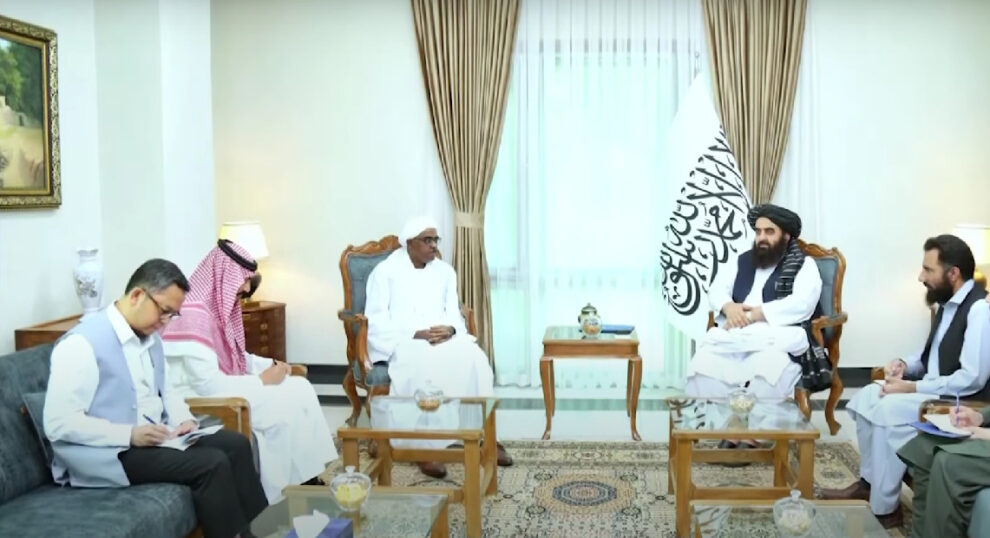Stanikzai asked the international community and friendly countries to take action to help the education and health sectors in Afghanistan.
The OIC delegation in Afghanistan in meeting with the Minister of Education Mawlawi Habibullah Agha, and the Minister of Higher Education Mawlawi Neda Muhammad Nadim discussed women’s education along other topics.
The OIC said on X social media platform “all sides” stressed that education is an Islamic obligation for both men and women, and the delegates emphasized the readiness of the OIC member states to provide all possible support in this regard, the OIC said on social media.
“The delegation stressed the need to exert all efforts to enable boys and girls to enroll in all levels of education and all specializations needed by the Afghan people at this critical stage in their history,” the OIC said.
The Islamic Emirate’s spokesman, Zabihullah Mujahid, said that the officials of the Islamic Emirate assured the delegation of the OIC that the ban on girls’ education in Afghanistan would not be permanent.
“They thought that the educational process might have been blocked or banned here, but it was not that way. The officials in different departments briefed them that it is suspended, so it will start, and we are working on this process,” Mujahid told TOLOnews.
“We have great scholars, university professors, so that a special mechanism can be put in place to get out of this situation,” Mohammad Ajmal Zurmati, a political analyst said.
Meanwhile, Sher Mohammad Abbas Stanikzai, deputy minister of Foreign Affairs, in a meeting with Fran Equiza, the UNICEF representative in Afghanistan, said that Afghanistan’s educational, health, and agricultural infrastructure has been damaged during the years of war, which has negatively affected the lives of citizens.
During the meeting, Stanikzai asked the international community and friendly countries to take action to help the education and health sectors in Afghanistan.
Hafiz Zia Ahmad Takal, deputy spokesman of the Ministry of Foreign Affairs, on social media quoted Fran Equiza as saying that UNICEF is trying to continue providing health services in Afghanistan in cooperation with the international community and the World Bank.
“He said that by 2024, they will provide 20 million people in Afghanistan with basic health aid. Through the polio program, 10 million children will receive polio vaccine, 6 million children will receive educational materials, and 1 million children will have access to potable water by the end of this year,” Takal said.
Source : Tolo News









